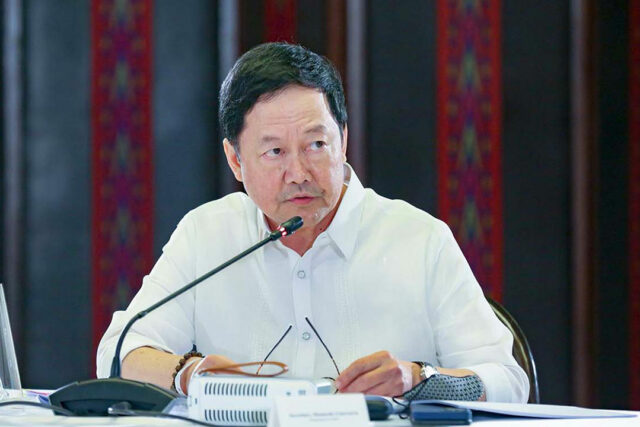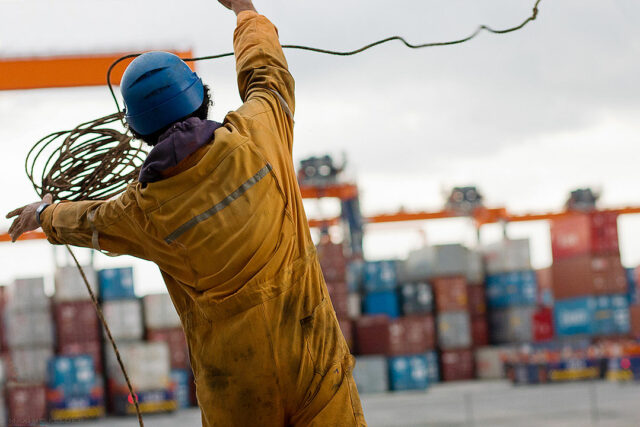TO GRASP the aberration of US foreign policy under President Donald Trump, consider an abbreviated history of America’s shifting attitudes toward just one country, Canada. And start with Ronald Reagan, who stood for the original and genuine version of “peace through strength.”
When signing a free-trade agreement with Canada in 1988, Reagan marveled at the world’s longest land border. “No soldier stands guard to protect it,” the 40th president said. “Barbed wire does not deface it. And no invisible barrier of economic suspicion and fear will extend it.” Canadians and Americans, Reagan remarked on another occasion, are “more than friends and neighbors and allies; we are kin.”
In the current context, three things are notable about Reagan’s sentiments. The first is that most Americans really like Canadians, even if they also struggle to see them as distinct, because Canadians can easily seem like “nicer” versions of Americans. The second is that Reagan oversimplified what has historically been a complicated, often competitive and sometimes contentious relationship. The third is that Americans, in both of those ways, have long regarded Canadians roughly as Russians used to view Ukrainians.
Fast forward to 1999, when the TV series South Park captured the dark side of this ambivalence as only satire can. A gathering of Colorado parents, generally cranky about what Trump would later call “American carnage,” breaks into a chorus. Our kids are failing and we’re frustrated in life: It can’t be our fault, so it must be someone else’s. Ergo, as the chorus has it, “Blame Canada.” As one soloist riffs, “they’re not even a real country anyway.” If South Park were Russian, the song might have been about Ukraine.
That episode aired when Vladimir Putin began his rise to autocratic power in Russia. Then as now, he was convinced that Ukraine isn’t a real country but a historical appendage of the Russian World. He mixed that notion with his premise that world politics is about dominance, and with his method (learned during his years as a KGB agent) of using lies, especially big lies, to get and wield power at home and abroad.
Enter Trump. For his motto in foreign policy, he’s adopted Reagan’s “peace through strength.” In practice, his approach to diplomacy and strategy is the opposite of Reaganism. Where the Gipper stood for freer trade, Trump stands for economic warfare by tariff. Where POTUS 40 sided unequivocally with America’s allies and stared down its adversaries, 47 disdains friends and flirts with foes. Where Reagan talked and acted kind toward weaker interlocutors such as Ottawa and tough toward menacing ones such as Moscow, Trump does the inverse.
In all those ways, Trump is much closer in worldview to Putin than to Reagan. Hence his repeated insinuations — with echoes of Putin’s threats in the years leading up to his invasion of Ukraine — to annex Canada as the 51st state. Some Canadians, not always tongue-in-cheek, are talking about a looming “Canschluss” (a portmanteau of Canada and Anschluss, Adolf Hitler’s annexation of Austria).
Trump’s preferred tool to effect a Canschluss seems to be economic coercion. Other American presidents have occasionally used anti-dumping duties to nudge Canada to drop its own trade barriers, notably those on lumber and milk; that is legitimate. But when Trump keeps toggling punitive and ruinous tariffs, on and off and on again, he’s after something else: subjugation.
Many of Trump’s threats would hurt America just as much as Canada. His administration has said that it might kick Canada out of the Five Eyes*, a group of countries which share intelligence that could save lives, including those of Americans. It has hinted that the US might pull out of the North American Aerospace Defense Command, in which Canada and the US jointly monitor the northern skies and seas for threats from Russia, China, North Korea, or other bogeys.
In wrapping this campaign into a narrative, Trump has absorbed propaganda lessons from Putin. When the Kremlin prepares to subdue a target such as Ukraine, it first weaves elaborate webs of lies, disinformation, and conspiracy theories. For example, Moscow has variously pretended that Ukraine is led by terrorists, Satanists, and neo-Nazis. What matters to Putin isn’t whether such narratives make sense, but whether they can be used to confuse and dominate. And that’s what Trump has picked up.
One lie that Trump has chosen to assail Canada is that the country is a kingpin in the fentanyl trade that kills tens of thousands of Americans every year. The supply lines of this opioid stretch from Chinese labs to Mexican cartels and (via smugglers who are mostly American) to consumers in the US. Some people have also carried fentanyl across the US-Canadian border, in both directions. But the amount that is smuggled southward is negligible, around 0.2%. If there is a lethal smuggling problem at the border, it goes the other way and involves American guns killing Canadians.
“Portraying Canada as America’s fentanyl enemy is a conspiracy theory,” thinks Timothy Snyder, a historian of Eastern Europe and tyranny. Combined with another big lie — that Canada does not really exist as a nation — it is, he concludes, “a step in a policy designed to soften up Canada for annexation.” When American pundits react mainly by pondering whether Canada would dye Washington politics bluer, they only add to the Canadian shock.
Canada’s politics, unsurprisingly, are in upheaval, as Canschluss dominates the upcoming general election. A new prime minister, Mark Carney, has second thoughts about a contract to buy 88 American-made F-35 fighter jets and is simultaneously wooing Canada’s European partners, with an eye to alternative alliances. Many Canadians are boycotting American goods; some are booing the US anthem at sports games.
It’s hard to overstate what an unprovoked and unnecessary disaster the situation already is. Nobody who voted for Trump last year did so to punish or annex Canada — or indeed Greenland, Panama, or any other place that Trump is picking on. America and the world have many urgent problems, but nobody of sane mind ever thought that the Canadian border was on that list.
Wantonly and whimsically, Trump has alienated and antagonized the people whom Reagan and many Americans long considered not only friends, neighbors, and allies but kin. Nothing about any of this is rational, wise, or normal — and it certainly has nothing to do with “strength.” It is the behavior of a global bully running amok, and just getting started.
BLOOMBERG OPINION
*The US, UK, Canada, Australia and New Zealand. –























